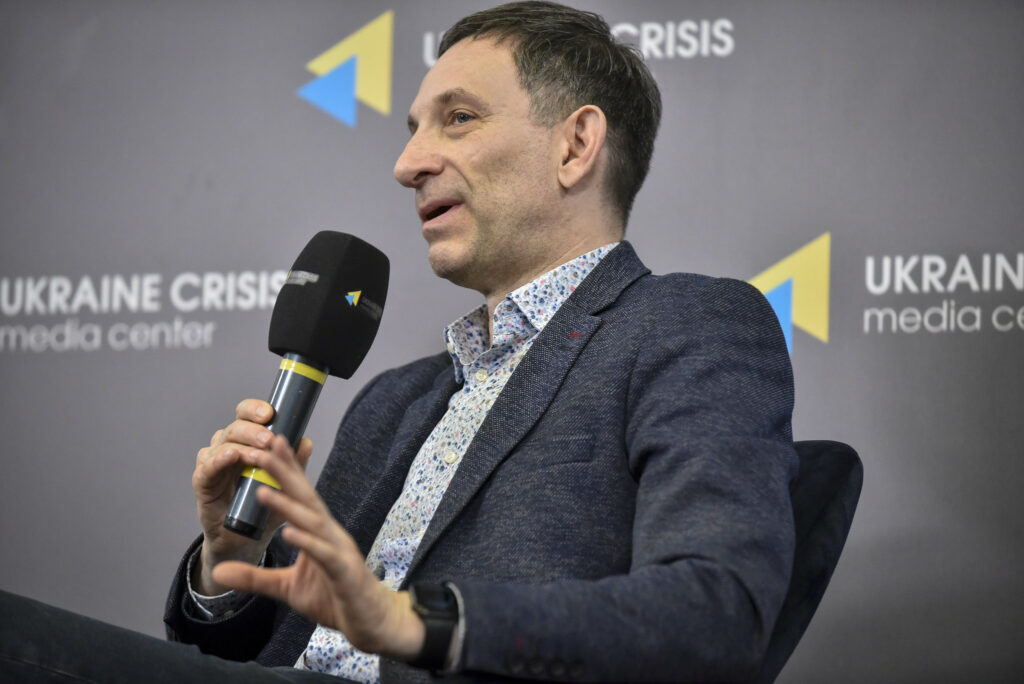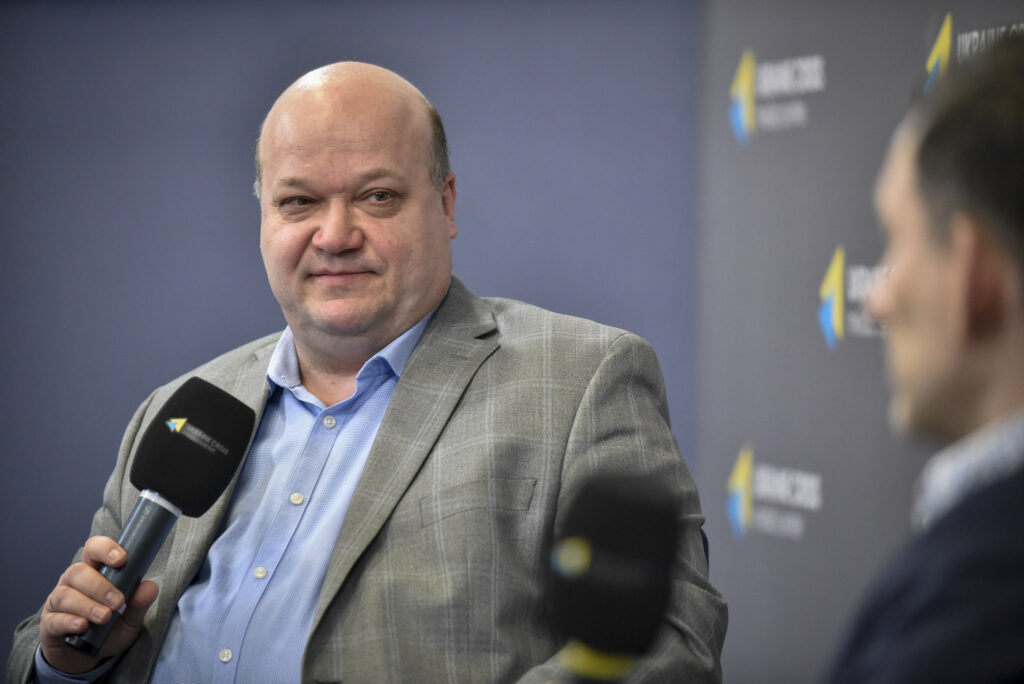Valeriy Chaly, Chairman of the UCMC Board, Ambassador Extraordinary and Plenipotentiary of Ukraine, and Vitaliy Portnikov, publicist, journalist, political analyst, in the project Geopolitical Dialogues, thoroughly examined the situation in Ukraine – from the search for historical parallels to the vision of the post-war period.
Vitaliy Portnikov does not see any historical parallels with the final.
“By and large, we’ve all seen collapses and reformatting of mainland and oceanic empires that existed in the world until the mid-twentieth century. And those empires never wanted to self-destruct. But practically all of them turned into national or quasi-national states. France and Austria became national states, the United Kingdom and Spain became quasi-national states,” he said.
Regarding the collapse of the Soviet Union, the publicist believes that the process took place earlier – in the twenties, when the Russian Empire turned into a mini-empire
“Today, Russia is not an empire at all. It is a national state with a small number of national minorities, which do not compete with the state-forming nation,” Vitaliy Portnikov admitted.
According to Valery Chaly, very often the Western press discusses negotiations as an absolutely realistic scenario: Zelenskyy and Putin meet and come to an agreement.
“In my opinion, a direct conversation with Putin will be a complete collapse of our country’s development plan. Sanctions are lifted, Russia gets extra opportunities and we return to the starting point, after spending a huge amount of the country’s resources, losing tens of thousands of people. Will this happen to Ukraine?” he asked his guest.
According to Vitaliy Portnikov, the problem is not that Zelenskyy cannot talk to Putin. On the contrary, the Russian president does not see the need to talk to his Ukrainian counterpart because Russia has entered a phase when it has officially announced that it does not consider Ukraine a state.
Valery Chaly finds it surprising that simultaneously with the growth of militant rhetoric in Russia, crisis phenomena are increasing. The Russian authorities cannot cope with the minimum security needs, as was the case with the terrorist attack, when they failed to react in any way. There is an ongoing problem with the Ural River, which is spreading, and cities begin to hold rallies one after another.
“People turn to the authorities and say: when we agreed to send additional resources to Crimea, you found a way, but now, instead of giving us water, the governor and the entire entourage left Orsk. And it’s at a time when Russia spends 6% of its GDP on war. Who knows what will happen next. I would not rule out the scenario that all these “black swans” will somehow arrive there,” the diplomat predicted.
Returning to the situation in Ukraine, the participants of the discussion expressed their opinions about how to talk to the West now.
“We should tell the Western political elites what I always say to my Polish friends,” answered Vitaliy Portnikov. “Please understand that the question is not how much your farmers will get, but that if we have nothing to feed our army with and Russia wins, then both Jaroslaw Kaczynski’s party and Donald Tusk’s coalition will disappear from the political arena. You will be ruled by the Confederation, and the current leaders of Poland will be marginalized and mentioned only in history textbooks.”
For his part, Valeriy Chaly is confident: if we start speaking to our partners in their language, we will lose. In addition, the West is not always right, and history has shown this more than once.
Valeriy Chaly worries that Ukraine is being seen as a country that is on the way to defeat. In conversations with partners, they ask to show Ukraine’s success. It is clear that it is extremely difficult to do it at the front now, but why not show success inside the country? This concerns the strength of public administration, the fight against corruption, and the electoral process. And in this direction, according to Valery Chaly, it is necessary to develop internal discourse.





